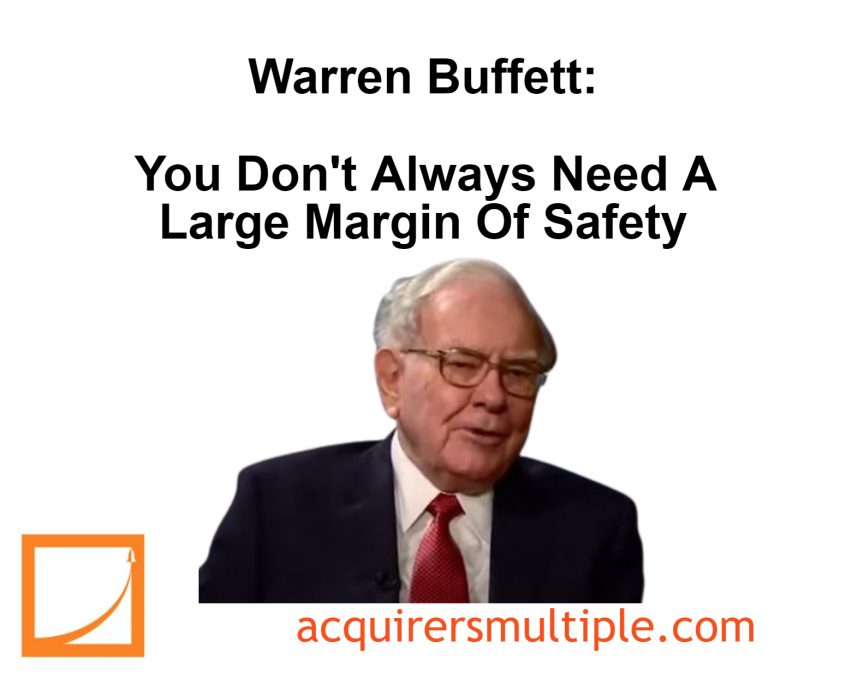During the 2007 Berkshire Hathaway Annual Meeting, Warren Buffett explained why you can buy businesses that don’t have a large margin of safety. Here’s an excerpt from the meeting:
WARREN BUFFETT: We favor the businesses where we really think we know the answer.
And, therefore, if a business gets to the point where we think the industry in which it operates, the competitive position or anything is so chancy that we can’t really come up with a figure, we don’t really try to compensate for that sort of thing by having some extra large margin of safety.
We really want to try to go on to something that we understand better. So if we buy something like — See’s Candy as a business or Coca-Cola as a stock, we don’t think we need a huge margin of safety because we don’t think we’re going to be wrong about our assumptions in any material way.
What we really want to do is buy a business that’s a great business, which means that business is going to earn a high return on capital employed for a very long period of time, and where we think the management will treat us right.
We don’t have to mark those down a lot when we find those factors. We’d love to find them when they’re selling at 40 cents on the dollar but we will buy those as much closer to a dollar on the dollar. We don’t like to pay a dollar on the dollar, but we’ll pay something close.
And if we really get to something — you know, when we see a great business, it’s like if you see some — somebody walk in the door, you don’t know whether they weigh 300 pounds or 325 pounds. You still know they’re fat, right, you know?
And so if we see something we know it’s fat, financially, we don’t worry about being precise.
And if we can come in, in that particular example, at the equivalent of 270 pounds, we’ll feel good.
But if we find something where the competitive aspects are — it’s just the nature of the business that you really can’t see out five or 10 or 20 years because that’s what investing is, is seeing out.
You don’t get paid for what’s already happened. You only get paid for what’s going to happen in the future. The past is only useful to you in the extent to which it gives you insights into the future, and sometimes the past doesn’t give you any insights into the future.
And in other cases, like the stable business that you postulated, it probably does give you a pretty good guideline as to what’s going to happen in the future, and you don’t need a huge margin of safety.
You should have something that — you always should feel you’re getting a little more than what it’s worth, and there are times when we’ve been able to buy wonderful businesses at a quarter of what they’re worth, but we haven’t seen those — well, we saw it in Korea here recently — but you don’t see those sort of things very often.
And does that mean you should sit around and hope they come back for 10 or — you know, wait 10 or 15 years? That’s not the way we do it. If we can buy good businesses at a reasonable valuation, we’re going to keep doing it.
Charlie?
CHARLIE MUNGER: Yeah. You’re — that margin of safety concept boils down to getting more value than you’re paying. And that value can exist in a lot of different forms.
If you’re paid four-to-one on something that’s an even money proposition, why, that’s a value proposition, too.
It’s high school algebra. And people who don’t know how to use high school algebra should take up some other activity.
For all the latest news and podcasts, join our free newsletter here.
Don’t forget to check out our FREE Large Cap 1000 – Stock Screener, here at The Acquirer’s Multiple:



